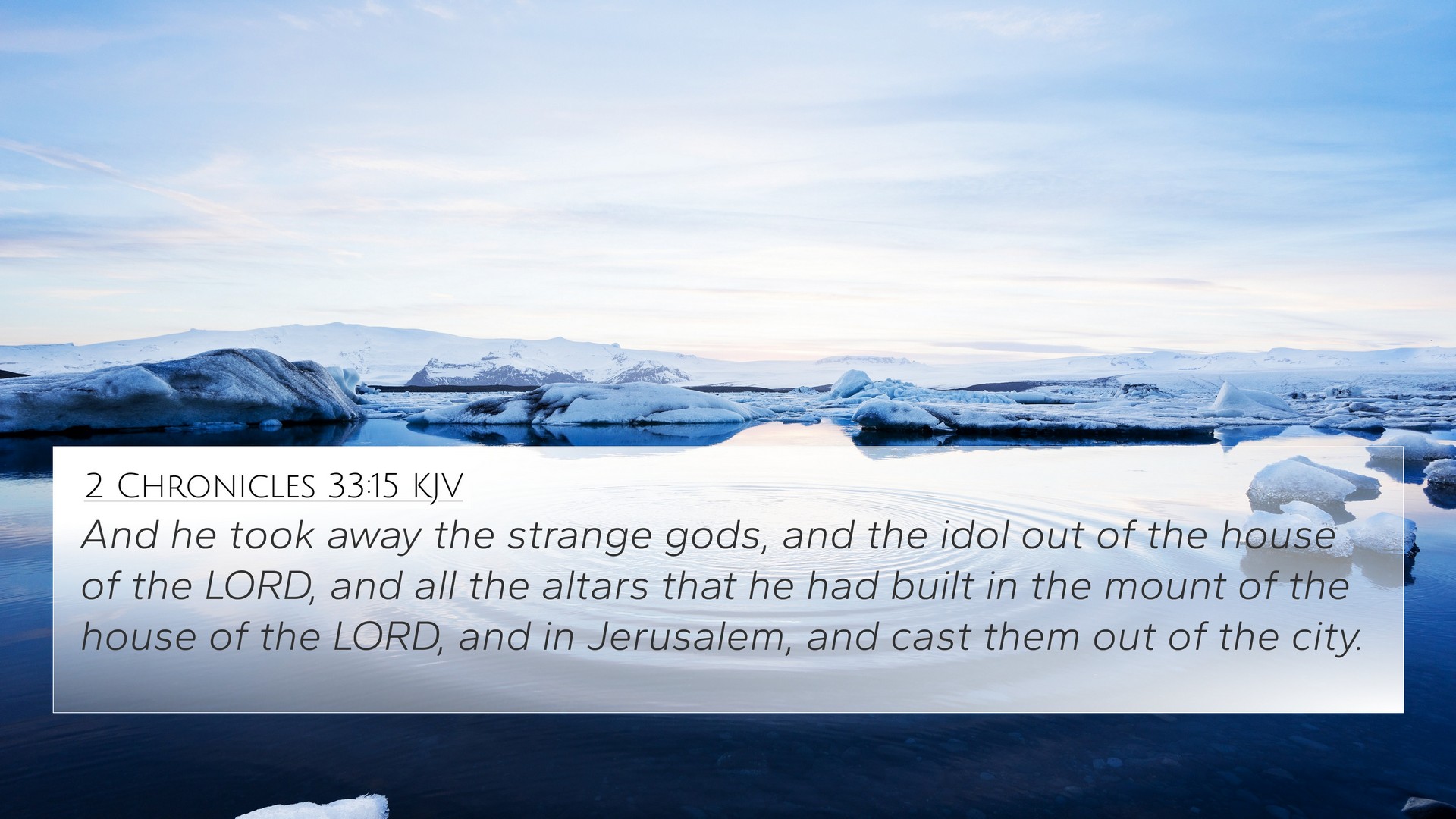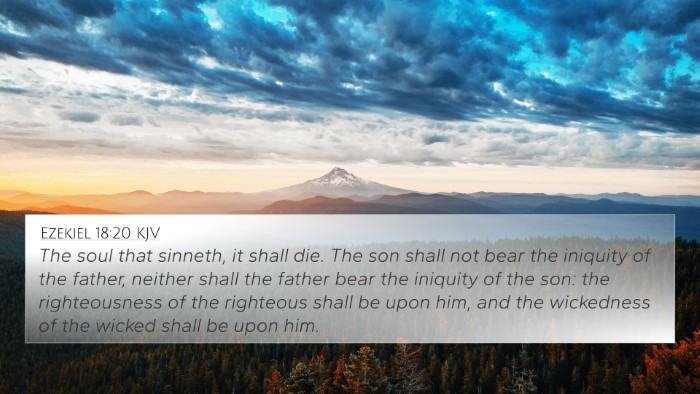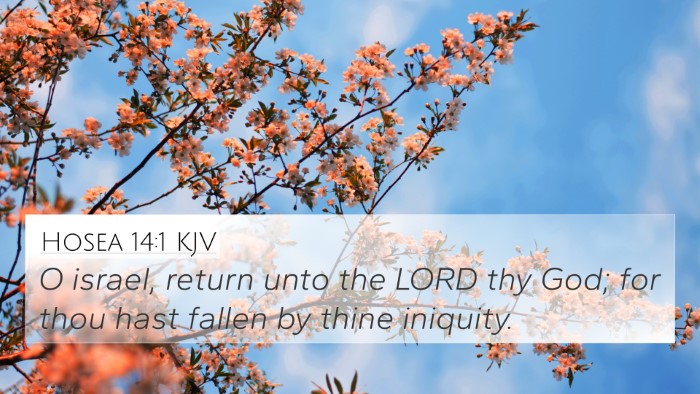Understanding 2 Chronicles 33:15
2 Chronicles 33:15 is a pivotal verse in the story of King Manasseh of Judah, who is recognized for his profound sins and later, repentance. In this verse, we see the significant moment when Manasseh's heart is transformed, and he begins to make amends for his past actions.
The verse states: "And he took away the strange gods, and the idol out of the house of the LORD, and all the altars that he had built in the mount of the house of the LORD, and in Jerusalem, and cast them out of the city."
Meaning and Interpretation
From prominent public domain commentaries, we can gather insights into the significance of this verse:
-
Matthew Henry:
Henry emphasizes the gravity of Manasseh's actions in turning away from idol worship. His removal of "strange gods" signifies a return to true worship of Yahweh, illustrating profound repentance and an acknowledgment of past sins.
-
Albert Barnes:
Barnes elucidates that Manasseh's actions demonstrate the importance of removing barriers to worship. The casting out of idols and altars symbolizes not just repentance but also an essential step for national restoration and spiritual renewal for the entire nation of Judah.
-
Adam Clarke:
Clarke points out that this act is indicative of the transformation in Manasseh’s character. It represents not just a physical act of removal but a spiritual cleansing, showing a heart turned back to God and compliance with divine order.
Key Themes in 2 Chronicles 33:15
The actions detailed in this verse resonate with several key theological themes:
-
Repentance: The transformative act of acknowledging sins and taking steps to atone for them is central to the concept of repentance.
-
Restoration: Manasseh's actions not only restore his personal relationship with God but also that of his people.
-
Worship: The removal of idols reflects a return to authentic worship, underscoring God's desire for a pure heart among His followers.
Bible Verse Cross-References
To understand the connections and implications of 2 Chronicles 33:15, we can explore several related verses:
- 2 Kings 21:3 - Discusses Manasseh's previous idolatries.
- 2 Chronicles 33:12 - Highlights Manasseh's initial repentance and supplication.
- Jeremiah 15:4 - Reflects on the consequences of Manasseh's sins upon the nation.
- Isaiah 1:18 - Describes God's willingness to forgive those who repent.
- 2 Chronicles 34:33 - Illustrates reforms in the days of King Josiah, drawing from Manasseh's actions.
- Romans 12:2 - Encourages believers to not conform to the patterns of this world, akin to turning from false idols.
- Acts 3:19 - Discusses the call to repentance and the refreshing of one’s spirit, similar to Manasseh’s experience.
Thematic Bible Verse Connections
The theme of repentance is echoed throughout Scripture. Manasseh's story exemplifies the transformative power of God's grace, much like the following verses:
- Luke 15:7 - The joy in heaven over one sinner who repents.
- 1 John 1:9 - The promise of forgiveness upon confession.
- Psalm 51:10 - A plea for a clean heart, akin to Manasseh’s desire for restoration.
Inter-Biblical Dialogue
Examining 2 Chronicles 33:15 reveals a rich conversation within the Scriptures regarding sin, repentance, and grace. The parallels drawn from both the Old and New Testaments illustrate a consistent divine theme—God's desire for restoration and true worship.
How to Use Bible Cross-References
For those seeking to delve deeper into the cross-referencing of biblical texts, several tools can assist in a more comprehensive study:
- Using a Bible concordance can help identify scripture references relevant to specific themes.
- Engaging in cross-reference Bible study methods encourages a thematic analysis of scripture.
- Employing a Bible cross-reference guide can streamline the process of linking related verses.
Conclusion
2 Chronicles 33:15 serves as a powerful reminder of the healing available through repentance. The insights provided by various commentators shed light on its rich meaning and implications for how we view our relationship with God. Through careful study and cross-referencing with related scripture, one can gain a deeper understanding of the importance of aligning one's heart with God’s desires.








